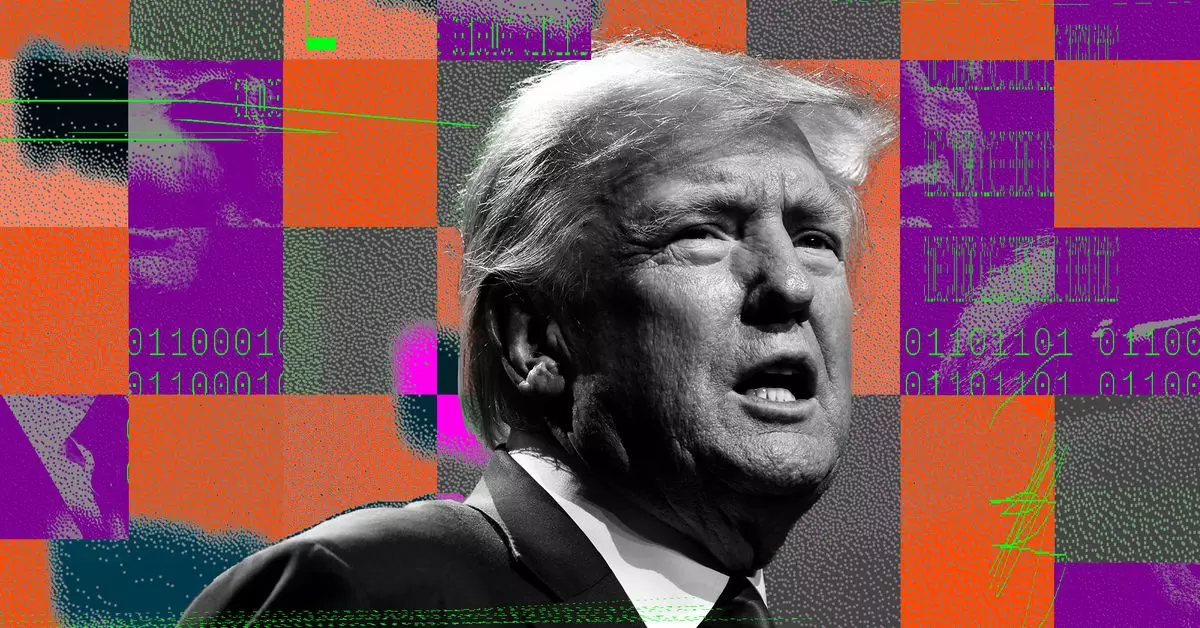In a remarkable turn of events, President-elect Donald Trump is utilizing his impending inauguration as leverage in a contentious legal battle surrounding TikTok, the widely popular social media application. Seeking to negotiate a resolution to the looming ban of the platform in the United States, Trump’s approach underscores not only his unparalleled knack for deal-making but also places him directly at the crossroads of national security and First Amendment rights.
TikTok, owned by the Chinese company ByteDance, has faced intense scrutiny from American lawmakers due to concerns that user data could be accessed by the Chinese government. The platform’s extensive reach, particularly among younger demographics, has made it a focal point of national security discussions. The tension escalated with the introduction of a congressional bill aimed at banning TikTok, which led to various legal interpretations and challenges. In essence, this bill, supported by a number of prominent political figures, could restrict the platform based on national security interests, underlining the ongoing geopolitical tensions between the U.S. and China.
The Supreme Court’s decision to hear arguments regarding the bill reflects the significant constitutional questions about free speech and government overreach. The dilemma hinges not just on the security implications but on the rights of American citizens to engage in forms of digital expression via platforms like TikTok.
In an emergency filing with the Supreme Court, Trump is advocating for a stay on the enforcement deadline proposed by Congress, set for January 19, right before he is set to take office. He argues that only he possesses the necessary political resources and mandate to negotiate a favorable outcome for TikTok, effectively sidestepping the court’s need to make difficult decisions on First Amendment issues immediately.
Trump’s strategy appears to hinge on his past experience with TikTok as a campaign tool during his recent re-election bid. His amicus brief indicates he recognizes TikTok as an essential component of modern electoral engagement and political discourse. By framing the platform this way, he seeks not just to protect its operation in the U.S. but to elevate its role in American politics as a space for free expression.
Despite Trump’s bold assertions about his negotiating prowess, the details of any potential deal remain elusive. The expectation is that a resolution would likely require ByteDance to divest a significant stake in TikTok, allowing an American entity to take control and alleviate security concerns. However, the nature of negotiations with a company operating amid complex geopolitical dynamics poses numerous challenges, and skepticism abounds regarding the feasibility of such discussions.
Moreover, while Trump leans on his popularity within TikTok and the influence it held during the last election cycle, many political figures are urging the court to reject his appeal. Notable politicians, including senators like Mitch McConnell, are advocating for the courts to stand firm on national security grounds, reflecting a broad bipartisan consensus on the perceived risks associated with the Chinese ownership of TikTok.
The Broader Implications
This legal battle serves as a microcosm of the broader struggle between digital freedoms and governmental regulation. The outcome could set critical precedents regarding how emerging technologies operate within the framework of national security. If the Supreme Court rules in favor of upholding the ban, it could embolden further governmental control over social media platforms deemed a risk, which raises broader questions about how much influence governments should have over digital discourse.
Furthermore, Trump’s engagement with TikTok and plans for negotiation demonstrate a shift in perceptions surrounding the platform. His past campaigning against TikTok was largely influenced by national security narratives, but his recognition of its importance in political mobilization showcases the treadmill of political priorities and demonstrates the intricacies of balancing free speech with safety concerns.
As Trump walks into a new administration, the ramifications of his legal maneuvering over TikTok will be closely scrutinized. Whether or not he will successfully negotiate an agreement that satisfies national security concerns while preserving a platform for free expression may very well define his early political capital. The case not only highlights the complexities of digital regulation but also the persistent tug-of-war between maintaining national security and safeguarding fundamental rights in a rapidly evolving technological landscape.


Leave a Reply